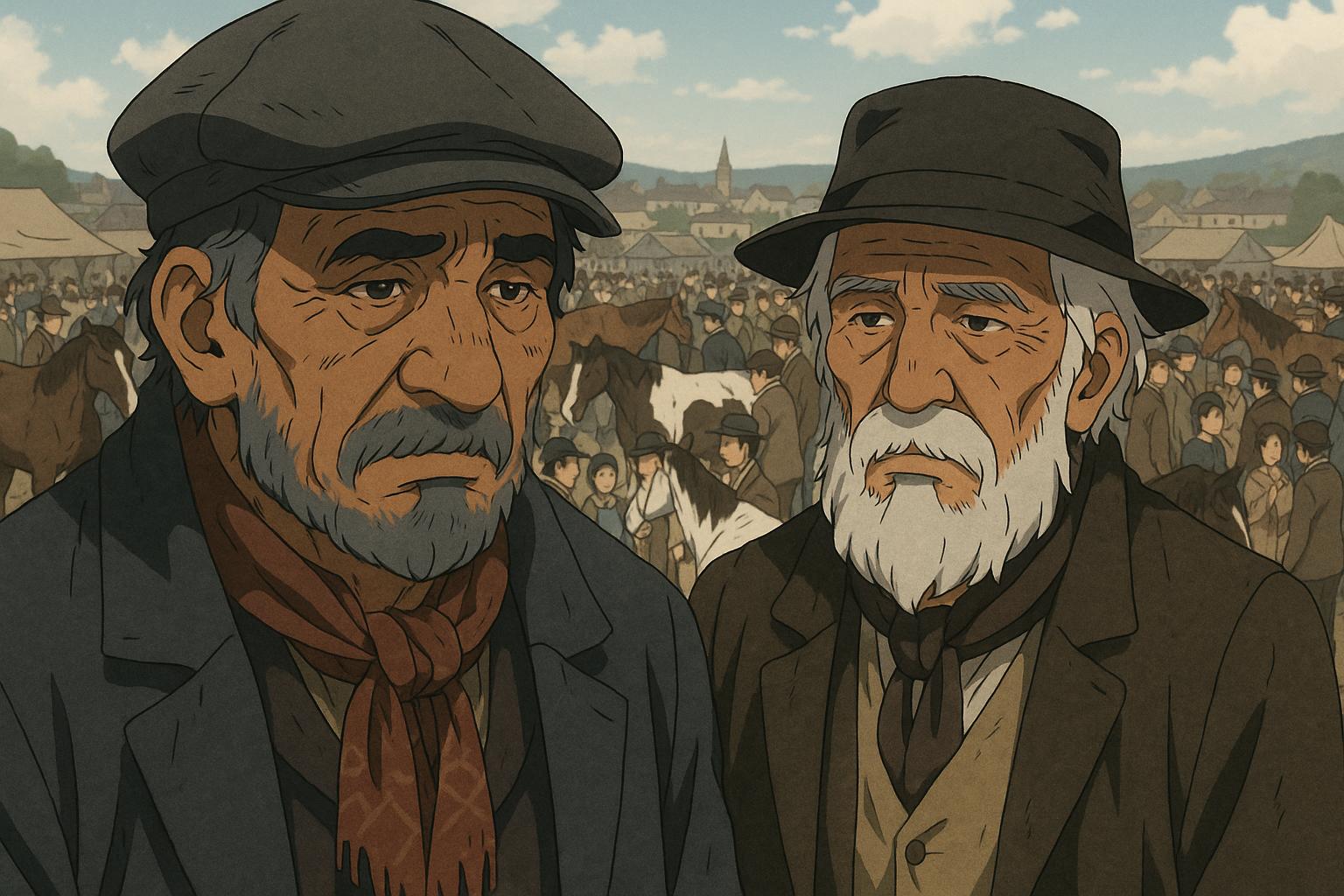Nelson Scott and Dinky Sherwood sat together with a sense of resignation as they gazed over the assembled crowd at the Wickham Horse Festival, a historic event that has drawn attendees since the 13th century. The annual fair, held every March 20, has been a cornerstone for the Romany gypsy community, but both men, lifelong participants, feel its essence is being eroded. Over the years, they have witnessed an influx of non-travellers, or "gorja wannabes," which they believe dilutes the traditional bonds of their community. Scott, aged 78, expressed a grim prediction, stating, “There’s only about ten years left before it will stop completely... It will be a shame because we won’t be able to meet up like we do.”
This sentiment is not unique to these cousins. Many within the Romany community share concerns that the authenticity of their culture is waning. The Wickham Horse Fair, laden with centuries of tradition, is increasingly filled with attendees they describe as inauthentic, which they perceive as a symbolic representation of their diminishing heritage. Dinky echoed Scott’s lament, stating, “The fair’s dying out because there’s too many wannabes.” Their frustration is visible on their faces, reflecting a sense of cultural alienation amid the sea of unfamiliar attendees who do not embody the travelling lifestyle.
As the fair unfolds, local shops and pubs often close under directives from law enforcement and local councils, wary of potential disruptions. This year, only a few defiant businesses served the crowds, indicating a local reluctance to engage fully with the festival’s vibrant atmosphere. Jessy Goddard, a prominent horse trader, contended that some see horse trading during the fair as a means to launder money, indicating a perception that the event serves as much for outsiders as it does for the Romany. He lamented, “It’s not the same as it used to be. It will never be the same and that’s a big shame.”
One of the central tensions surrounding the fair is the changing dynamics of marriage and identity among younger travellers. Traditionally, intermarriage with non-travellers, whom they refer to in derogatory terms, was rare and frowned upon. However, the new generation frequently engages in relationships outside their culture, a development that elders mourn. “There’s too much mixing. Young people are turning away because they are marrying a different breed of people,” Scott lamented. This has led to a dilution of traditional roles and practices, where even festival-related knowledge seems to be lost among younger generations.
Moreover, significant shifts in lifestyle have altered the very fabric of Romany culture. Scott and Sherwood both recall days when their upbringing revolved around the nomadic lifestyle. “We liked our good old-fashioned food. Now they like fast food,” Sherwood said, recognising that modern conveniences are reshaping the cultural landscape. The traditions of self-sufficiency and culinary heritage, once vibrant during the fair, are now overshadowed by contemporary fast-food culture and the influence of technology.
Despite their fears of an impending cultural demise, Scott and Sherwood remain resolute about their identities. Scott declared, “I’ll never lose my way of life; I’ll always be true to myself.” This steadfastness resonates with many within the Romany and traveller communities, who fight to preserve their unique heritage in the face of modernity. Unfortunately, tensions with local authorities complicate these efforts, with police incidents often overshadowing the fair. Goddard illustrated the strained relationship, asserting that locals have preconceived notions about traveller behaviour that influence their willingness to engage during the fair.
Yet, the spirit of community remains alive among many, who continue to uphold traditions linked to the fair’s historical roots—having been granted a royal charter by King Henry III in 1269, placing the fair within a legal framework that underscores its cultural gravity. While they may lament the changes, individuals in attendance express hope for future gatherings that honour their legacy. For the Romany community, Wickham Horse Fair isn’t just an event; it is a living testament to resilience, identity, and the ever-evolving interface between tradition and modern life.
As this rich tapestry of culture and concern unfolds, the uncertain future of the Wickham Horse Fair remains a poignant reflection of broader social trends and the enduring struggle for cultural recognition in an increasingly homogenised world.
Reference Map:
- Paragraph 1 – [1], [4]
- Paragraph 2 – [1], [2], [4]
- Paragraph 3 – [3], [6]
- Paragraph 4 – [1], [4], [6]
- Paragraph 5 – [1], [5], [6]
- Paragraph 6 – [1], [4], [6]
- Paragraph 7 – [1], [5], [6]
Source: Noah Wire Services
